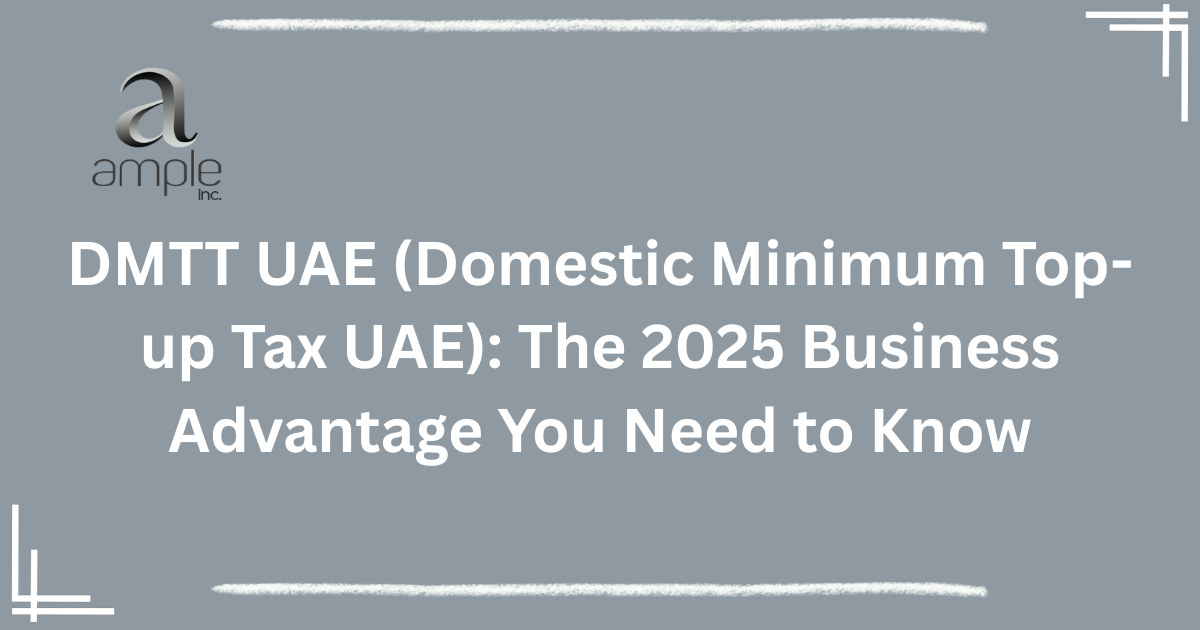Introduction
Since its introduction in 2018, Value Added Tax (VAT) has become a cornerstone of the UAE’s fiscal system. Businesses are required to register, collect, report, and remit VAT in line with the Federal Tax Authority (FTA) regulations. Despite several years of practice, VAT mistakes UAE companies make remain a leading cause of financial penalties, failed audits, and reputational harm.
The stakes are high. According to the FTA, administrative penalties for VAT non-compliance can range from AED 1,000 for late filing to AED 50,000 for improper recordkeeping. In a competitive market like the UAE, no business can afford such setbacks.
In this blog, we’ll break down the 7 most common VAT mistakes in the UAE, explain why they happen, and provide actionable solutions to help your company stay compliant, efficient, and audit-ready.
1. Late VAT Filing and Payment The Most Frequent VAT Mistake in UAE
Why It’s a Problem
The most frequent VAT mistakes UAE businesses make is missing filing deadlines or failing to pay on time. The FTA imposes strict penalties for late VAT submissions:
- AED 1,000 for the first missed deadline, escalating to AED 2,000 for repeat offenses.
- 2% penalty of the unpaid tax immediately.
- Additional 4% monthly penalty until settlement.
How to Avoid It
- Automate reminders using FTA’s EmaraTax portal.
- Use accounting software with built-in tax deadline alerts.
- Maintain a VAT reserve account to ensure liquidity for payments.
Pro Tip: At Ample Inc., we help clients integrate VAT compliance calendars into their accounting systems.
2. Incorrect VAT Calculations Misapplication of Tax Rates
Why It’s a Problem
Applying the wrong VAT rate is one of the most costly VAT mistakes UAE businesses make. For example, mistakenly applying 5% VAT to zero-rated exports or exempt items can distort filings and trigger audits.
Common errors include:
- Charging VAT on exempt financial services.
- Misclassifying zero-rated international transport services.
- Forgetting to apply reverse charge for imports.
How to Avoid It
- Keep updated on FTA VAT rate classifications.
- Train finance teams on exempt vs. zero-rated categories.
- Deploy accounting software that flags inconsistencies.
Example: In 2023, a Dubai SME was fined AED 15,000 for applying VAT incorrectly to zero-rated educational services.
3. Issuing Non-Compliant Tax Invoices
Why It’s a Problem
Invoices that don’t meet FTA standards are invalid for VAT recovery. Over 30% of FTA audit issues arise from improper invoices.
Mandatory invoice elements include:
- TRN (Tax Registration Number).
- VAT rate and amount clearly shown.
- Date of supply and unique invoice number.
- Description of goods/services.
How to Avoid It
- Adopt FTA-compliant invoicing templates.
- Regularly audit invoices for errors.
- Train sales/accounting staff on invoice compliance.
Learn more: FTA VAT Invoicing Guidelines
4. Claiming Ineligible Input Tax
Why It’s a Problem
Many businesses mistakenly recover VAT on non-deductible expenses such as:
- Entertainment & hospitality.
- Employee personal expenses.
- Company cars used for both business & private purposes.
FTA often disallows these claims, resulting in penalties.
How to Avoid It
- Understand deductible vs. non-deductible VAT under UAE law.
- Maintain supporting invoices for all claims.
- Conduct periodic reviews of input tax recovery.
Stat: Around 20% of voluntary disclosures filed in 2024 were due to wrongly claimed input tax.
5. Poor VAT Record-Keeping A Long-Term Compliance Risk
Why It’s a Problem
FTA requires businesses to keep VAT records for at least 5 years (and 15 years for real estate). Failure to do so may result in fines ranging from AED 10,000 to AED 50,000.
Common recordkeeping issues:
- Missing invoices or contracts.
- No digital backups.
- Poor document indexing.
How to Avoid It
- Invest in cloud-based recordkeeping systems.
- Perform internal audits twice a year.
- Keep digital + physical copies for redundancy.
Read also: 7-Year Tax Recordkeeping Rule UAE
6. Ignoring Reverse Charge Mechanism (RCM)
Why It’s a Problem
When businesses import goods or services, they must account for VAT via Reverse Charge Mechanism (RCM). Many SMEs forget to apply RCM, leading to understated VAT liabilities.
How to Avoid It
- Flag all imports in your accounting system.
- Train finance teams on cross-border VAT treatment.
- Reconcile RCM entries in every VAT return.
7. Not Filing Voluntary Disclosures for Errors
Why It’s a Problem
Some companies discover mistakes but fail to file voluntary disclosures (Form VAT211). If the FTA uncovers the error first, penalties can soar up to 50% of unpaid tax.
How to Avoid It
- File voluntary disclosures immediately when errors are detected.
- Keep documentation to justify disclosures.
- Seek expert guidance for complex cases.
Pro Tip: Ample Inc. helps clients file voluntary disclosures strategically, minimizing penalties and safeguarding reputation.
Real-World VAT Compliance Trends in UAE (2025 Update)
- FTA Enforcement Surge: In early 2025, FTA inspections increased by 22%, targeting SMEs with poor VAT records.
- Technology Integration: The EmaraTax platform is now integrated with corporate bank accounts for streamlined VAT payments.
- Sector Focus: Real estate, e-commerce, and logistics remain high-risk industries for VAT audits.
Summary: VAT Mistakes UAE Businesses Should Avoid
| VAT Mistake | Risk | Solution |
|---|---|---|
| Late Filing & Payment | Heavy fines | Automate reminders & allocate VAT funds |
| Wrong VAT Rate | Misreporting & penalties | Train staff, update systems |
| Non-Compliant Invoices | Disallowed claims | Use FTA-compliant templates |
| Ineligible Input Tax | Rejected claims | Verify expenses before claiming |
| Poor Recordkeeping | AED 50,000 fines | Cloud + backup systems |
| Ignoring RCM | Understated liabilities | Flag imports in accounting |
| No Voluntary Disclosure | Higher penalties | File VAT211 promptly |
How Ample Inc. Can Support Your VAT Compliance
At Ample Inc., we specialize in helping businesses eliminate VAT mistakes in UAE and ensure audit readiness. Our services include:
With our expertise, you can focus on growth while we ensure compliance.
Conclusion
Avoiding VAT mistakes UAE businesses commonly make is not just about preventing fines—it’s about building trust, operational efficiency, and long-term sustainability. By mastering VAT compliance today, you create a competitive advantage for tomorrow.
At Ample Inc., we’re here to ensure your compliance journey is smooth, accurate, and penalty-free.



